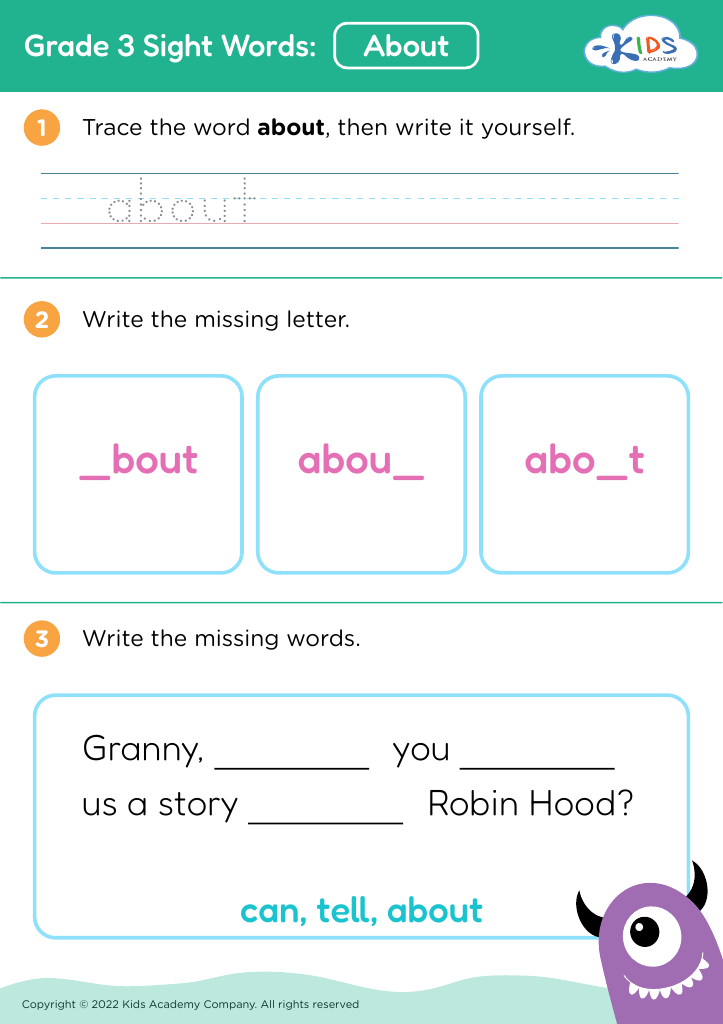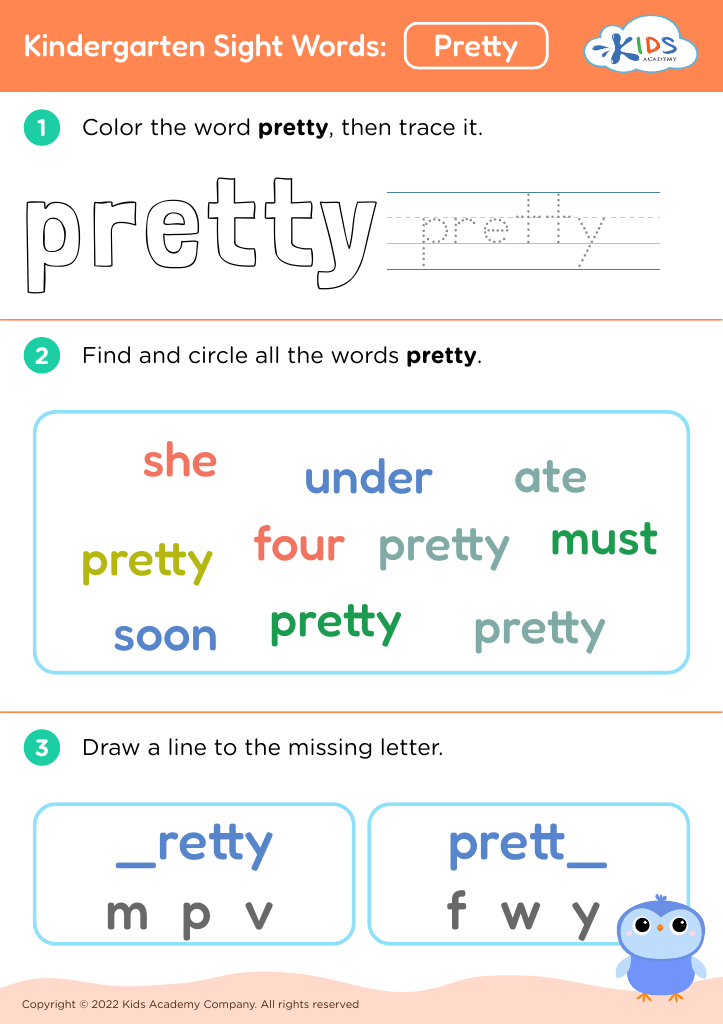Practice addition Reading Worksheets for Ages 5-8
3 filtered results
-
From - To
Welcome to our "Practice Addition Reading Worksheets" for children aged 5-8! These engaging worksheets are specially designed to help young learners enhance their addition skills while developing their reading comprehension. With a variety of fun and interactive exercises, kids will enjoy solving addition problems embedded in rich contextual narratives. Our worksheets promote critical thinking and improve math fluency, making learning both enjoyable and effective. Perfect for individual practice or group activities, these resources align with early educational standards, ensuring a solid foundation in both mathematics and literacy. Download now and watch your child's confidence in adding numbers grow!
Practicing addition reading for children aged 5-8 is crucial for their developmental progress in both math and literacy. At this age, children are building foundational skills that are essential for future academic success. Engaging with addition tasks not only helps them understand numbers and equations but also enhances their comprehension and vocabulary. When tasks involve reading, children learn to decode mathematical language and context, promoting critical thinking and problem-solving skills.
Additionally, practicing addition through reading engages students in different learning modalities. Via storytelling, they can visualize mathematical concepts, making abstract ideas more concrete. This nurturing of multisensory learning not only aids in retention but also fosters a love for both reading and math, creating a holistic educational experience.
Furthermore, parental and teacher involvement in these practices reinforces a supportive learning environment. By showing interest and providing guidance, adults can help mitigate any anxiety surrounding math, ultimately promoting a growth mindset. The skills developed at this stage become stepping stones for more complex mathematics and reading comprehension later. In turn, encouraging regular practice builds confidence, leading to improved performance in school and a greater capacity for lifelong learning. Thus, fostering addition reading is essential for balanced cognitive development.



















